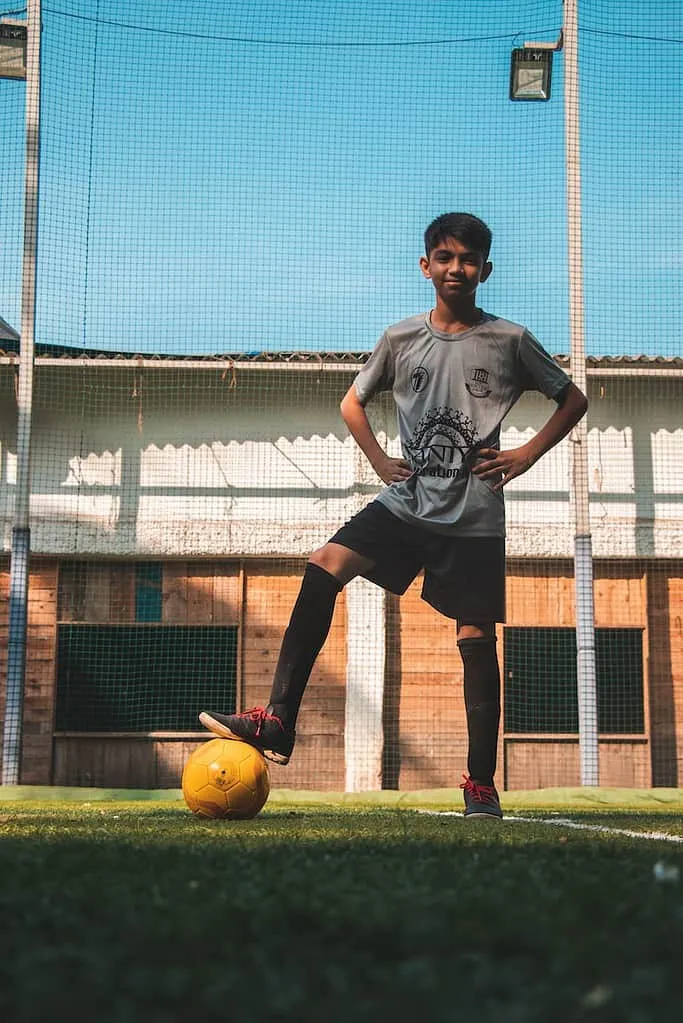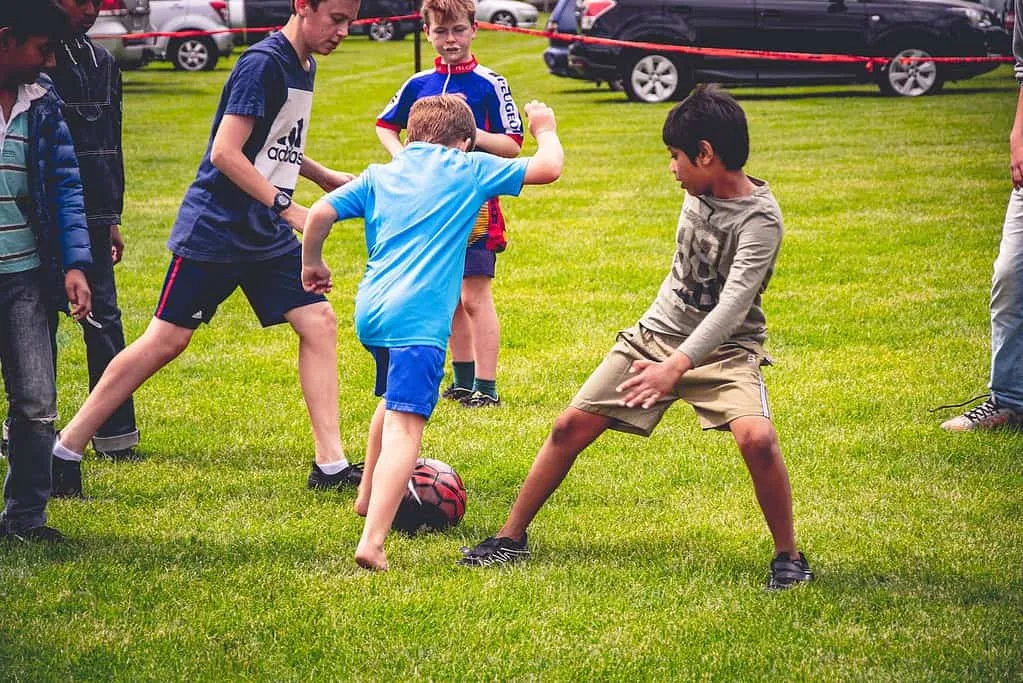Soccer, also known as football in many parts of the world, is a globally celebrated sport that unites millions.
It’s a game that transcends age, with children as young as three starting their soccer journey, and adults continuing to play well into their senior years.
This sport is not just about the physical game; it’s about the passion, the community, and the shared love for the game that brings people together.

From the local parks to the grand stadiums, soccer is a sport that can be played anywhere, anytime. It’s a sport that requires minimal equipment, making it accessible to people from all walks of life.
Whether you’re a seasoned player or a beginner, soccer offers a platform to learn, grow, and most importantly, have fun.
II. Age Requirements for Soccer
The age requirement for soccer varies depending on the league and the level of competitiveness. However, most soccer programs start accepting children from the age of three or four. These programs focus on developing basic motor skills and introducing the children to the concept of teamwork.
As the children grow older, the training becomes more structured and competitive. Teenagers and adults can participate in amateur leagues, school teams, or even professional clubs.
The beauty of soccer is that it has something to offer for everyone, regardless of age.
Regardless of age, understanding the basics of soccer is crucial for anyone interested in the sport. Soccer is a game played between two teams of eleven players, with the objective being to score by getting the ball into the opposing goal.
The game is played using only the feet, body, and head. Only the goalkeepers are allowed to touch the ball with their hands. The game is governed by a set of rules known as the Laws of the Game.
Understanding these rules, along with basic techniques like passing, shooting, and dribbling, forms the foundation of soccer. This section will cover the fundamental rules and techniques of soccer, providing a solid foundation for beginners of all ages.
IV. The Importance of Age in Soccer
While soccer is a sport that can be enjoyed at any age, the player’s age can influence the training methods, equipment used, and the level of competition.
Younger players are often taught basic skills and teamwork, while older players engage in more tactical and physical training. The equipment used also varies with age, with younger players using smaller balls and goals.
Similarly, the level of competition increases with age, with older players participating in more competitive leagues. This section will explore how age plays a role in soccer.
V. Starting Soccer: Tips for Different Ages
Starting soccer at any age can be an exciting venture. For younger children, the focus should be on having fun and developing basic motor skills.
As the children grow older, they can start learning more complex skills and tactics. Teenagers and adults starting soccer should focus on fitness and understanding the rules of the game.
Regardless of age, it’s important to remember that soccer is a game, and the primary goal should be to have fun. This section will provide tips and advice for starting soccer at different ages, from youth soccer to adult leagues.
VI. Soccer Equipment for Different Ages
The right equipment can make a significant difference in a player’s performance and safety. For younger children, smaller balls and goals are used to make the game more accessible.
As the players grow older, they transition to standard size equipment. Apart from the ball and goal, players also need to have the right footwear and protective gear like shin guards.
VII. Soccer Training and Age: What to Expect
Training for soccer varies with age. For younger children, the focus is on developing basic skills and having fun.
As the children grow older, the training becomes more structured, with a focus on developing specific skills and understanding tactics.

Teenagers and adults engage in more rigorous training, focusing on fitness, tactics, and advanced skills. Regardless of age, it’s important to remember that regular practice is key to improving in soccer.
This section will outline what to expect in soccer training at different ages, from youth leagues to adult training sessions.
VIII. Soccer Leagues and Age Divisions
Soccer leagues are often divided by age to ensure fair and balanced competition. These age divisions allow players to compete against others of a similar age and skill level.
Youth soccer leagues typically start from under-6 divisions and go up to under-19 divisions. Adult leagues are usually open to anyone over the age of 16 or 18, depending on the league.
There are also senior leagues for older adults who still want to play competitively.
IX. The Role of Parents in Youth Soccer
Parents play a crucial role in youth soccer. They are not just spectators; they are their child’s biggest supporters and often their first coaches.
Parents help their children learn the basics of the game, take them to practices and games, and provide encouragement and support.

They also help instill a love for the game and teach important values like sportsmanship and teamwork. However, it’s important for parents to remember that youth soccer should be about having fun and developing skills, not just about winning.
X. The Future of Soccer: Age is Just a Number
In soccer, age is just a number. Whether you’re a young child just starting out, a teenager aspiring to play professionally, an adult playing in an amateur league, or a senior playing in a masters league, soccer offers opportunities for everyone.
It’s a sport that can be played and enjoyed at any age. It’s never too late to start playing soccer, and it’s never too early to start dreaming big.
